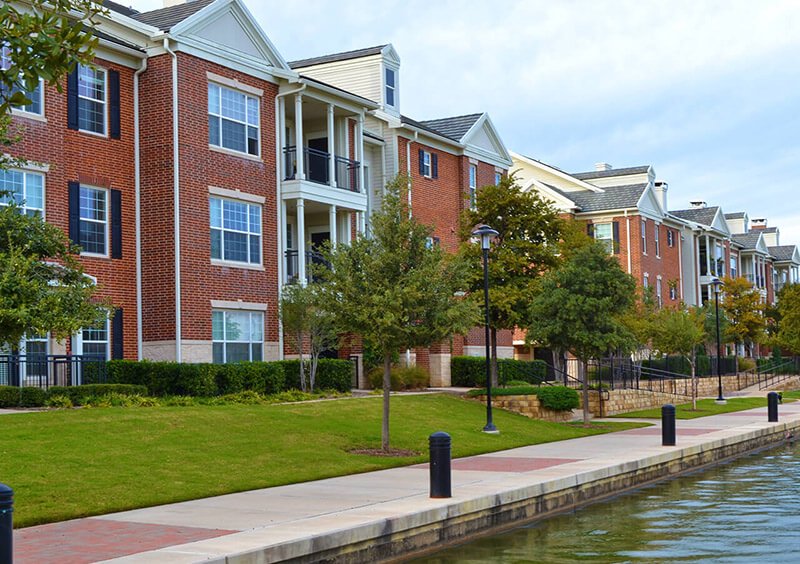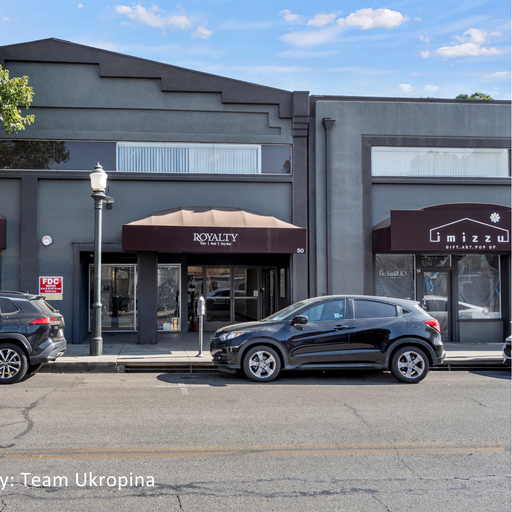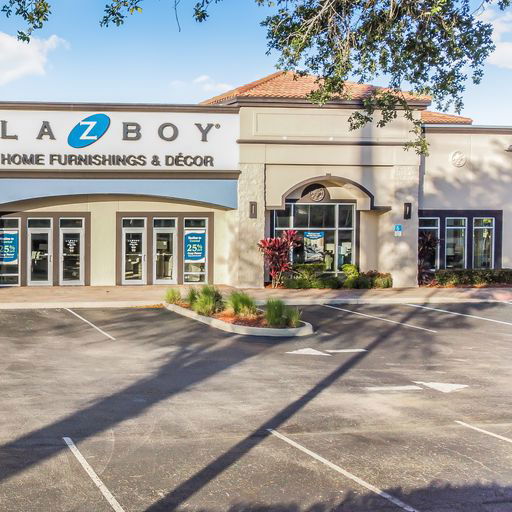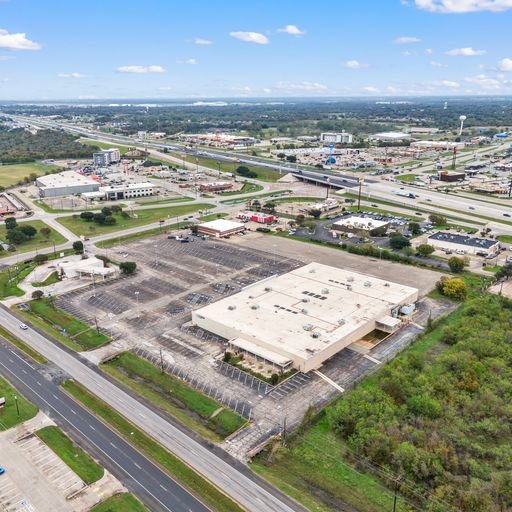
Retail
Retail space is commercial real estate property where goods and services are sold directly to buyers in person, who are purchasing for their own use. These brick-and-mortar storefronts including strip malls, shopping centers, community retail centers, power centers, shopping malls and out parcels. Properties may be operated with a single tenant or multiple tenants who typically lease space from the property’s owner.
Business Sectors
Strip Mall/Shopping Center
These small retail properties include a mix of tenants in different retail businesses such as gift shops, salons and dry cleaners, which may or may not include an anchor tenant.
Community Retail Center
Normally 150,000 to 350,000 square feet, community retail centers often feature multiple anchor tenants such as grocery stores, drug stores and restaurants.
Power Center
These larger retail centers typically have several smaller, inline retail store tenants with a few major box retailers. Each big box retailer occupies 30,000 to 50,000 square feet. Power centers often include several out parcels as well.
Regional Mall
Traditional regional malls offer 400,000 to 2 million square feet of space with multiple anchor tenants such as department stories and major retailers.
Out Parcel
Large retail centers often include multiple out parcels, which are retail properties allotted for individual tenants such as restaurants or banks.
Much like office space, retail space can also be classified in three tiers:
-
Class A properties offer high-end construction, quality interior detailing, sought-after design, sustainability measures and top of the line mechanical and sprinkler systems. They often have existing high-end tenants and may offer desirable amenities, such as valet parking and on-site services.
-
Class B properties are one step down and may be slightly older or in a less attractive location, yet they are still well-maintained, have quality tenants and good access. These properties are often a good investment and can increase in value with upgrades and repairs to become Class A.
-
Class C properties are in less desirable locations, have few amenities and a more dated appearance. With upgrades and maintenance, these properties can sometimes move up to Class B.
Your Trusted Guide
To compete in the retail space, investors need a nuanced understanding of consumer demand and how that
impacts the needs of tenants. Coldwell Banker Commercial® affiliated
professionals who specialize in retail can help owners maximize the value of their property prior sale
through recommended upgrades, rehabilitation, market repositioning and helping secure anchor tenants. Our
skilled CBC affiliated professional can assist buyers with aligning their business strategies.
Whether you are looking for retail space to purchase, lease or sell, our knowledgeable professionals can
help find you the right retail space for your needs.
Our Services
Look to the Coldwell Banker Commercial network to assist with all your retail real estate needs. Our services include:
-
Acquisitions – CBC affiliated professionals can assist you with research, due diligence, lease and purchase.
-
Demographic Overviews – Our experienced CBC affiliated professionals can help you understand where your customer lives, their preferences and lifestyle characteristics, what paths customers take to the store and where they visit before and after the retail site.
-
Market Analysis – We can identify underperforming markets, analyze market potential, and find and rank potential locations for your retail real estate investment.
-
Void Analysis – Your CBC affiliated professional may identify gaps in specific businesses and services in one area compared to a similar area.
-
Competitive analysis – Our CBC affiliated professionals may map potential store locations, evaluate the competitive environment of each site, determine the site’s market share, and identify if new trade areas overlap with existing locations.
-
Landlord representation - We can help property owners and investors attract and retain ideal tenants while boosting investment value through our access to the leading online database of currently expanding retailers.
Latest Retail News
Stay informed with the latest commercial real estate market reports,
trends and industry news
from
Coldwell Banker Commercial.
-
 Retail
RetailRetail CRE Mid-2025: Resilient, Redefined, and Regionally Driven
As of mid-2025, the U.S. retail commercial real estate sector remains resilient, with strong demand in suburban and Sun Belt markets offsetting urban challenges and...
-
 Retail
RetailICSC Las Vegas: Adapting to Evolving Consumer Behaviors and Economic Shifts
ICSC Las Vegas 2025 drew over 25,000 retail real estate professionals to explore the evolving retail landscape, with themes of community, innovation, and strategic investment...
-
 Retail
RetailThe Continued Rise of Experiential Retail
Experiential retail is revolutionizing the shopping experience by creating immersive, interactive environments that engage multiple senses and foster deeper connections with consumers. This trend, exemplified...
Other Property Types

Hospitality
Hospitality properties require specialized understanding of both real estate and operations. Coldwell Banker Commercial affiliated hospitality professionals offer experience in hospitality occupancy, real estate, and valuation and will help you find the right space for your goals.

Industrial
Coldwell Banker Commercial affiliated professionals' industry knowledge makes us well-positioned to match you perfectly with your ideal commercial properties.

Multifamily
Multifamily residential properties can be a lucrative investment and provide a stable long-term income opportunity. With deep connections across the industry and in local communities, your CBC affiliated professional can open the door to potential investors and tenants.

Office
Whether your business needs to lease or sublease office space or acquire or sell an office building, Coldwell Banker Commercial affiliated professionals can develop a customized solution tailored to your specific goals.

Distressed
Coldwell Banker Commercial affiliated professionals can help to navigate the complexities of a distressed property transaction by providing expertise and guidance to both buyers and sellers to help mitigate risks and maximize returns.

Agriculture
With their extensive network and market knowledge, CBC affiliated professionals can help facilitate a smooth and successful transaction for an agricultural property.

Land
When you work with a Coldwell Banker Commercial affiliated professional who specializes in land, you will receive valuable guidance on available properties with insights into the market, upcoming projects, local zoning and restrictions that could impact your investment.







